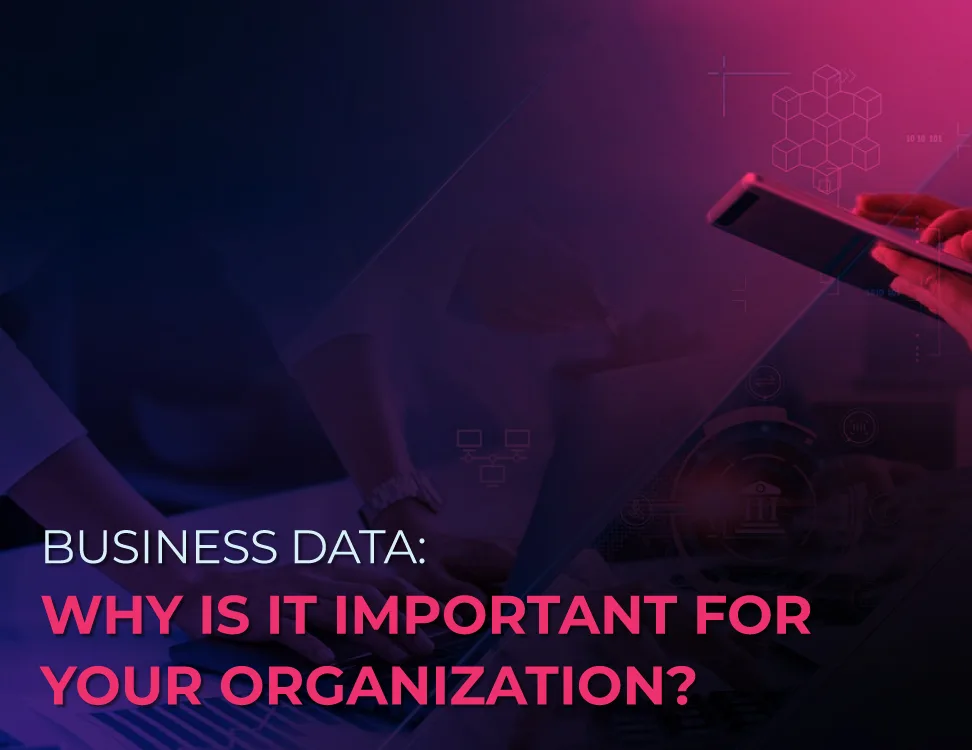
Business Data: Why is it important for your organization?
In today’s digital era, collecting data has become an essential component of every business strategy. From small startups to large organizations, business data is critical in helping businesses make informed decisions and evolve their operations. In fact, in a survey conducted in 2021, 37.8% of business executives said they believe their companies were data-driven.
What is Business Data?
Business data refer to the different information collected by an organization to support its operations, decision-making processes, and overall goals. Business data usually come from a variety of sources that generally depend on an organization’s field of activity, size, and goals. This information usually includes any statistical information such as customer transactions, sales records, financial statements, employee performance metrics, market research, and more.
Five common types of data collected by enterprises:
- Customer Data: This type of data includes information about customers, such as their name, contact information, purchase history, and customer feedback.
- Financial Data: This type of data includes financial information, such as income, expenses, assets, and liabilities.
- Employee Data: This type of data includes information about employees, such as their name, contact information, job title, salary…
- Operational Data: This type of data includes information about production, inventory levels, supply chain information, and logistics data.
- Marketing Data: This type of data includes information about marketing campaigns, such as website traffic, social media engagement, email open rates, and conversion rates.
Why is data so important to a business?
Data provide clarity and insight to businesses, to help them make better decisions and improve their performance. Therefore, relying on data is important regardless of the size of your company.
- Make better decisions
Real-time intelligence provided to business leaders through data helps them make more accurate market predictions. With the right data in hand, leaders can make lower-risk decisions based on facts and insights which allows them to plan and strategize for the company’s future.
- Measure & understand performance
Measuring teams, individuals and suppliers’ performance is vital to strategic decision making. Performance data helps companies know how each element is performing against targets and goals. This is one of the key insights gained from business data analysis.
- Improve Processes
Data helps organizations understand and improve business processes. It enables teams to highlight weaknesses, so they can reduce wasted money, resources and time. At any stage of delivering a product or service to a customer, doing it faster and cheaper is a competitive advantage.
In order to benefit from business data, organizations should know how to extract the greatest value from them. Thus, it is essential to adopt the relevant technology to effectively collect, analyze, utilize and protect data.








